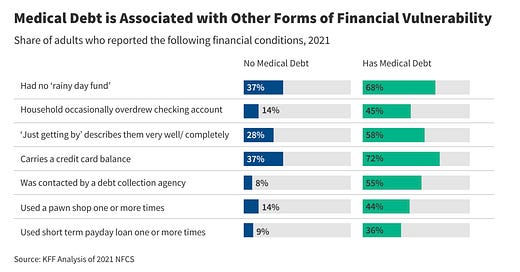Welcome to a Tuesday edition of Progress Report.
Tonight’s topic of conversation for paid subscribers: What’s the most grueling physical and/or medical experience you’ve ever endured?
Please consider a subscribing and/or donating to keep Progress Report afloat and sustainable. Far-right extremists are financed by billionaires and corporations, who invest in conservative outlets, think tanks, and law firms to advance their interests. We rely on forward-thinking readers like you. Please help us fight the good fight.
I returned home from the hospital today, 13 days after undergoing what my cardiac surgeon deemed the most complicated Ross procedure of his career. My return was delayed a few days by catching a bit of not-so-novel coronavirus, which now has me isolating at home with my wife (our toddler is with my in-laws, true heroes who nonetheless still won’t be given any leeway if Shea winds up showing any fondness for the Phillies).
None of this is that interesting, I don’t think, except in so much that it’s helped me to further understand the nuances of our healthcare system and social safety net, both of which I was already pretty familiar.
Legally in New York, Medicaid can’t limit the length of stay at a hospital, and the medical pros caring for me really seemed only motivated by my health. More broadly speaking, that private insurance pays hospitals more than Medicaid no doubt influences decisions in some places, and if I need some kind of rehab, private insurance dominates the market.
It’s the care economy and workplace rights around illness that I think goes most undiscussed. First and foremost, having medical debt is a leading indicator of other kinds of financial distress, according to a new study. Being sick is expensive, especially when it requires one to spend down their resources.
The federal Family Medical Leave Act (FMLA) provides up to 12 weeks of unpaid leave to take care of an illness, either one’s own or that of a close family member. Only 12 states, plus DC, have laws requiring paid leave of any sort; that includes Minnesota, where Democrats passed a law last year that will make paid leave available beginning in 2026.
New Mexico Democrats just passed an FMLA bill through the state Senate for the second year in a row, with higher margins that offer hope that it will become law this time. The loudest opposition came from Republican legislators claiming to be speaking on behalf of small businesses, a notion belied by statistics:
Keep reading with a 7-day free trial
Subscribe to Progress Report to keep reading this post and get 7 days of free access to the full post archives.






